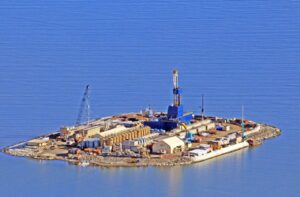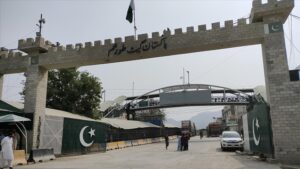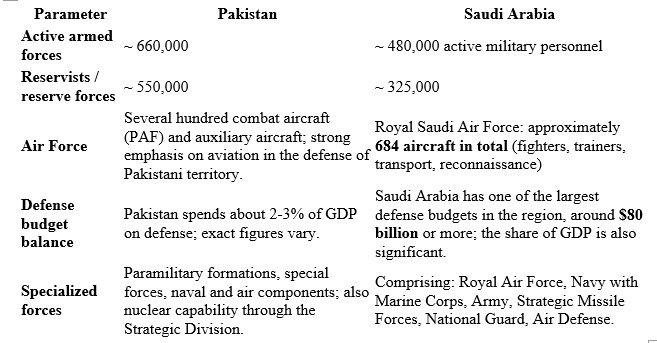
State-owned Pakistan Petroleum Ltd. will build an island to create a launch pad for accelerating oil and gas exploration. The artificial island will be located approximately 30 kilometers off the coast of the southern province of Sindh, near the city of Sajawal, PPL’s chief executive officer for exploration and core business development, Arshad Palekar, told Bloomberg. According to him, this will prevent tidal waves from interrupting round-the-clock geological exploration work.
This project, the first of its kind for Pakistan, is based on the experience of Abu Dhabi, where artificial islands for drilling have been successfully built, Paleekar said.
Construction of the island will be completed in February, and operations will begin immediately after that, he added. The company plans to drill about 25 wells.
Drilling operations in Pakistan are gaining momentum after US President Donald Trump expressed interest in the country’s “huge oil reserves” in July. Since then, offshore exploration licenses have been issued to local companies PPL, Mari Energies Ltd. and Prime International Oil and Gas Co.

Intense fighting broke out between Afghan and Pakistani forces on the border between Afghanistan and Pakistan, marking one of the most serious escalations in recent years.
According to reports from the Afghan side, 58 Pakistani soldiers were killed during night operations, and 25 border posts were captured. Pakistani authorities confirm the deaths of 23 of their soldiers and claim significant losses on the Afghan side, exceeding 200 people.
Pakistan cites air strikes on its targets in Kabul and eastern Afghanistan, including strikes on suspected Tehreek-i-Taliban Pakistan (TTP) positions, as the cause of the conflict. The Afghan side claims that in response to repeated violations of its airspace by Pakistan, it launched an operation to capture border positions.
As a result of the intensification of fighting, the Pakistani authorities closed key border crossings — Torkham and Chaman, as well as a number of smaller border crossings.

Pakistan and Saudi Arabia have signed a strategic mutual defense agreement, under which an attack on one country will be considered an attack on both.
The agreement is called the Strategic Mutual Defense Agreement. It was signed on September 17, 2025, in Riyadh, Saudi Arabia. It was signed by Pakistani Prime Minister Shehbaz Sharif and Saudi Crown Prince Mohammed bin Salman.
The key provision of the agreement is that “any aggression against one party will be considered aggression against both.” The document does not explicitly mention the use of nuclear weapons or specific military assets, but it states that the agreement covers all defense and military means that the parties deem necessary depending on the threat.
The signing took place against a backdrop of heightened regional tensions, particularly following Israeli airstrikes on Qatar and concerns among Arab states about the reliability of US protection. The long-standing relationship between the countries includes cooperation in training, the presence of Pakistani military personnel in Saudi Arabia, and the protection of Islamic holy sites.
The military forces of Pakistan and Saudi Arabia
To understand which countries are part of the agreement, it is important to assess their military capabilities:


The President of Ukraine, Volodymyr Zelenskyy, accepted credentials from the newly appointed ambassadors of Cyprus, Michalis Firillas, Latvia, Andrejs Pildegovičs, and Pakistan, Kanwar Adnan Ahmed Khan, according to the press service.
“Volodymyr Zelenskyy and Michalis Firillas discussed increasing sanctions pressure on Russia, food security, joint projects within the European Union, the security situation in the region, and cooperation with partners, particularly in multilateral formats,” the statement said.
In addition, Zelensky and the Cypriot ambassador discussed Ukraine’s future membership in the European Union and priorities during Cyprus’ presidency of the Council of the European Union in the first half of 2026.
The president also discussed with Pildegovičs the development of the PURL initiative, increasing pressure on Russia, and humanitarian aid. The ambassador assured that Latvia would actively promote Ukraine’s interests at the UN next year when the country becomes a non-permanent member of the organization.
Zelensky discussed with the Pakistani ambassador the development of bilateral cooperation, particularly in the defense and military-technical spheres, as well as partnership in trade and food.

Foreign Ministers of Uzbekistan, Afghanistan and Pakistan Bakhtiyor Saidov, Amir Khan Muttaki and Ishaq Dar signed a trilateral framework agreement on the development of a feasibility study for the Trans-Afghanistan Railway project during a meeting in Kabul on Thursday.
“We have signed a trilateral framework agreement on the development of a feasibility study for the Trans-Afghanistan-Pakistan Railway project, which is of strategic importance for the whole of Eurasia,” the Uzbek Foreign Minister said in his telegram channel.
He noted that this transportation corridor will improve trade, support Afghanistan’s economic recovery, and open new routes to world markets through southern ports.
According to Saidov, during the meeting, the Uzbek side reaffirmed its commitment to strengthening trade ties, expanding cooperation in agriculture, pharmaceuticals, textiles and construction, as well as increasing the capacity of the Termez International Trade Center (opened in Uzbekistan near the Afghan border).
As reported, in February 2021, representatives of Uzbekistan, Afghanistan, and Pakistan signed a joint action plan for the construction of the Mazar-e-Sharif-Kabul-Peshawar railway with a length of 573 kilometers and a transit potential of up to 20 million tons of cargo per year following talks in Tashkent.
The World Bank, the Asian Development Bank, the European Bank for Reconstruction and Development, the European Investment Bank, the Islamic Development Bank, the Asian Infrastructure Investment Bank, and the U.S. International Development Finance Corporation (DFC) have expressed interest in financing the project.
In April 2024, during Uzbek President Shavkat Mirziyoyev’s visit to Moscow, a preliminary agreement was reached on Russia’s participation in the project. The volume of Russian cargo transportation along the projected route can be estimated at 8-15 million tons annually.
According to the Ministry of Transport of Uzbekistan, the construction of the Trans-Afghan railway line will take at least 5 years, with a preliminary cost of $4.8 billion.
AFGHANISTAN, CONSTRUCTION, PAKISTAN, Trans-Afghan railroad, UZBEKISTAN